First, a truth:
Not every place is a good fit for every person.
Someone who hates heat and humidity probably shouldn’t move to Florida.
Someone who loves the mountains might not want to live in Belgium.
And if you hate being constantly bombarded by advertising, the USA is probably not your jam.
When it comes to where you live and where you spend your time – and whether you feel truly at home in those places – it comes down to values. Which are deeply personal and often wildly different.
For instance, I value quiet and solitude over activities and access to networking events, which is why I tend to fall deeply in love with tiny mountain towns and get easily tired of big cities. I have friends who feel the exact opposite way.
And the truth is that there’s no right answer. Solitude isn’t better than social opportunities and social opportunities aren’t better than solitude. It’s all about what matters to you. What speaks to your soul. What tames your anxiety or relaxes you in your stressed out moments.
Which brings me to Europe.
When I talk about values, I can’t help but talk about the places I feel most at home. And all of them are across the pond from where I grew up.
So, what are the values driving me back to Europe again and again? Why do I love Switzerland and France and Italy and Slovenia and Belgium inordinately much?
Here are nine reasons:
The Price is the Price
There’s something wonderfully simple about always knowing how much you’re spending. No hidden fees. No tips. No tax tacked on after the fact.
That’s Europe.
If you walk into a restaurant in Switzerland and the menu says rosti (hash browns) are $15, that’s how much you’ll pay. If you grab a pizza in Italy and the window sign says it’ll be $8, it’l be $8.
The tax, the fair wages for employees, the fees, they are all included. Which means you don’t have to think about it. You don’t have to do the math in your head to make sure you have enough cash or aren’t going over budget. You know what you’re spending up front. No gimmicks.
Now, this might not seem like a big deal to some, but you’d be surprised how freeing it is to go from constantly having to do the math on tips and taxes to not having to worry about it. It’s just simpler. Less frustrating. And makes it much easier to track your budget (something that’s really important to me).
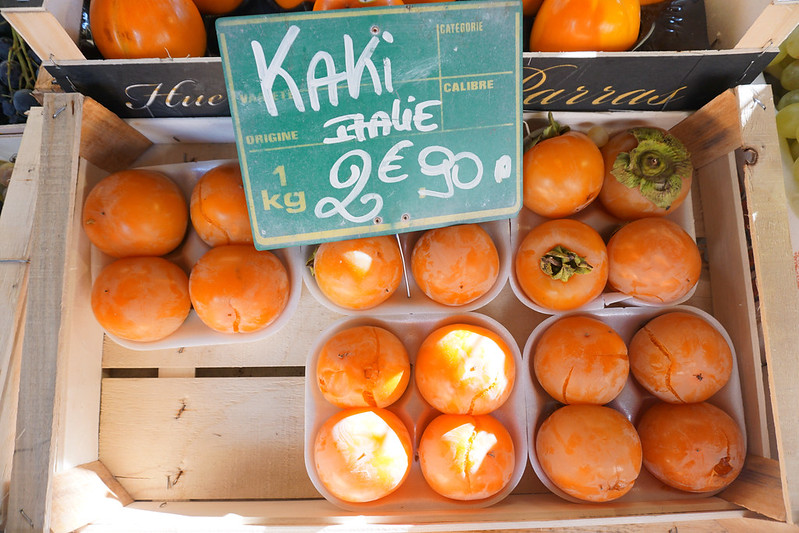
Dogs Welcome
Even if I didn’t have a dog, I would love how dog-friendly Europe is. I feel a little jolt of joy every time I see a dog parked under someone’s chair in a restaurant or curled up in a lap in a coffee shop. I love seeing people constantly out walking with their dogs everywhere. I love them on trains and buses, cute and curious and well-behaved.
And more than anything, I love the freedom Europe’s dog-friendliness affords me. If I take Luna to the park in the morning and I want to grab lunch on the way home, in Europe I can. In the US, I have to take her all the way home and go all the way back.
One of the things I value most in this world is my time and I’m hyper-sensitive when I feel like it’s being wasted without reason. Walking the dog all the way home instead of being able to come into the bistro for lunch feels like a massive waste.
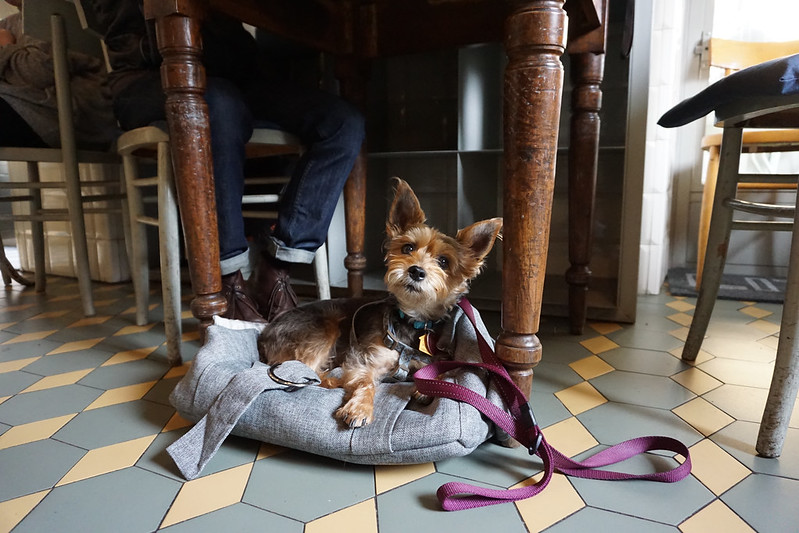
Luna lunches with us in a bistro in Rome.
No Car Needed
One of the reasons my life is so inexpensive is this: I don’t own a car. According to AAA, the average cost of car ownership (maintenance, gas, etc.) in 2013 was over $9,000. And I’m sure that figure has gone up year over year.
Then there’s the fact that car accidents are a leading cause of death in many places around the world and opting out of car culture is safer than opting in.
Plus, honestly, I just hate driving. When I’m on the road, especially in traffic, I feel invariably irritable and anxious – feelings I almost never have when on a train or metro.
In the US, not owning a car is pretty tough. There are very few cities with truly good public transport and even fewer options for getting outside the city and around more rural areas without personal transportation. I’ve managed it in a few places (New York being the easiest), but it’s tricky.
But in Europe? Not so.
In Europe, it’s easy to live my life without a car. Trains are usually clean, well-kept, comfortable, reasonably affordable, and timely. Cities are made for walking and cycling. And even bus systems are clean and usually on time.
Are there places in Europe that would be easier to access by car? Sure. But do you need to own a car to get around the continent? Nope. Not at all.
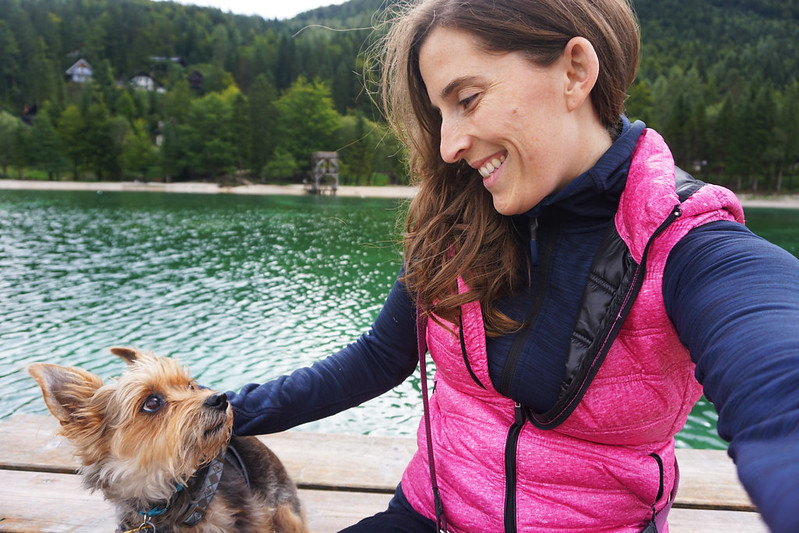
We got here without renting a car.
Wholesome Food Is Easy to Find
One of the things that’s really important to Chad and me is easy access to fresh, organic, non-GMO food, preferably sourced somewhere super nearby.
If that’s important to you too, Europe seriously delivers.
Big cities have sprawling fresh markets and even tiny towns usually have a weekly cluster of produce stands and homemade yogurt and local wine. Most European countries have banned growing GMOs, so the only time you have to worry about them is when you’re buying imports (or traveling in certain exception countries, like Spain). Many European countries also ban certain questionable chemicals and pesticides that are still allowed in American food (which is one of the reasons even big name brands taste different in Europe).
Quality standards are also sky high and if you’re shopping at fresh markets, you’re generally shopping seasonal, which means better quality and more flavor.
And here’s the thing: I didn’t know any of this when I first went to Europe, but after a few months on the continent, I felt better. I’ve struggled with stomach problems off and on for years, but I generally struggle with them less in Europe. I dropped two dress sizes in my first year of travel.
That’s not everyone’s experience, but it is mine. And it’s one of the things that brings me back to Europe again and again.
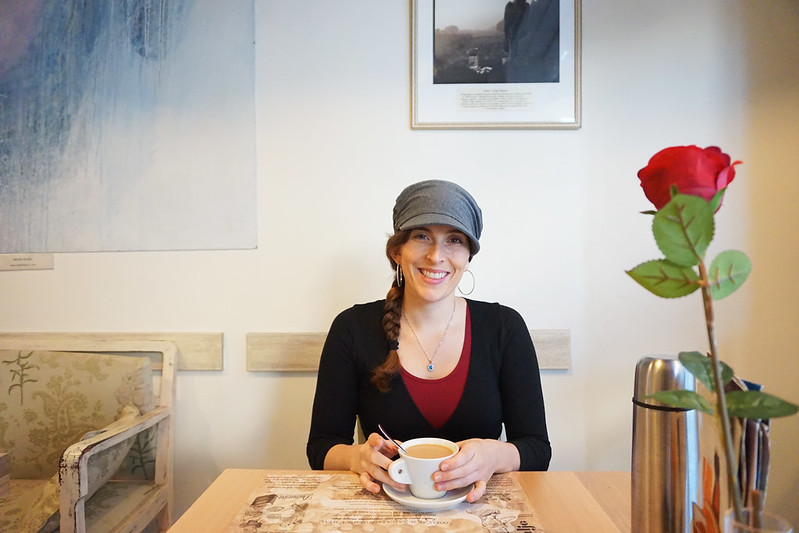
Less Fear. More Safety.
Despite the US government’s asinine blanket travel advisories, statistically pretty much every European country has significantly less violent crime than the US. Not to mention the fact that I don’t get cat-called, touched by strangers, or bothered as often. And I feel safer not just because of the statistics, but because I’m not surrounded by constant reminders of how scary the world is.
This is always really apparent to me when I visit the States after a long absence. I find myself constantly bombarded with warning signs and subway announcements about dangerous packages and messages about how I’m responsible for public safety. As someone who’s already hyper-vigilant because of my mental health situation, this hits me even harder than your average person and I get a sense of constant danger, which for me means more physical symptoms and deep, deep exhaustion.
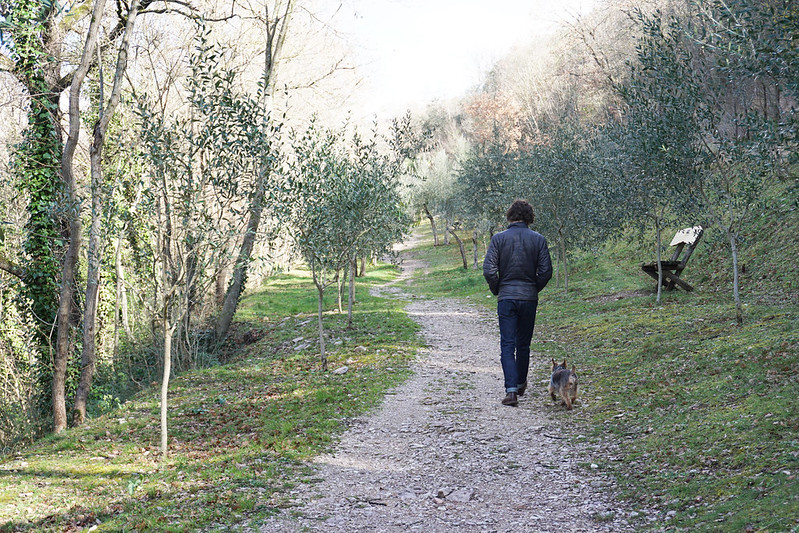
Everyone’s a Grown-Up Until Proven Otherwise
In Europe, I can spread out a picnic in the park and pull out a bottle of wine. Nobody’s going to tell me to shove it into a paper bag or that I can’t have an open bottle in the park or on the beach or in the mountains. I’m not in danger of being punched in the head for enjoying a glass of wine. I get to enjoy my picnic and it’s assumed that I’m responsible enough to do so.
Similarly, I don’t see silly warnings everywhere. Warning, don’t use the hairdryer in the shower. Warning, this bag of peanuts contains peanuts. Warning, don’t iron your shirt while it’s on your body. Warning, don’t stand here. Warning, don’t go there. Warning, here’s a giant ugly fence that’s ruining your view because we’re terrified that you’re going to fall off the hiking trail.
I didn’t realize just how exhausting those constant warnings were until they were gone. Just seeing words like warning and don’t and urgent all the time puts us on alert and, especially for those who have anxiety or PTSD or OCD, that’s pretty exhausting.
I love being in places where I can go about my day without being warned at every turn, reminded constantly of everything that could go wrong.
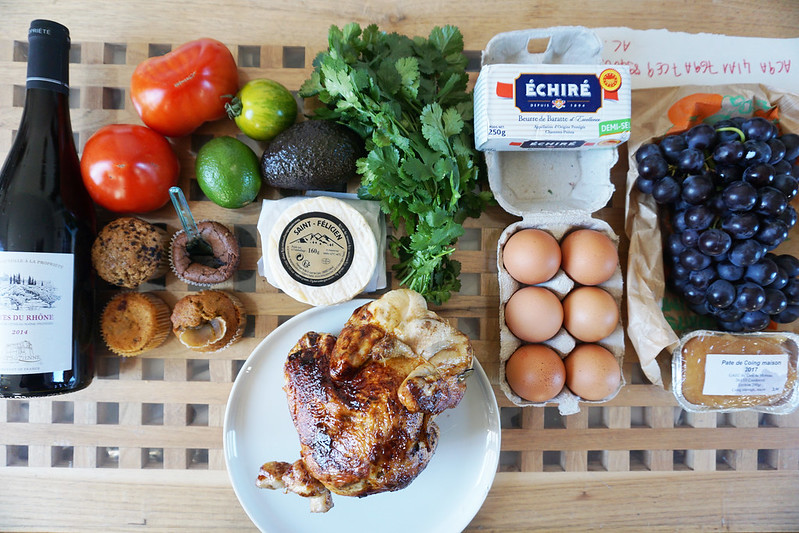
The Doctor Won’t Bankrupt You
In New York, the cheapest therapy I could find without a month+ waiting list was around $100 per hour. In Prague, it’s about $30.
In the States, pre-Obamacare, I paid $150 per month for my birth control – and that was with a 50% prescription discount card. In Switzerland, the exact same pills cost me $30 with no discount card. In Slovenia, I saw a doctor for five minutes to get a new prescription for my birth control. It cost about $5. In Colorado, a quick consult with the physician’s assistant was about $75.
Garbage Goes in the Garbage (For the Most Part)
I hate litter.
Like, not just hate it because I should hate it and we shouldn’t trash our planet, but hate it deeply and passionately and seeing garbage on the streets actively ruins my day. Which is one of the reasons big cities and I often don’t jive and also one of the reasons I adore places like Switzerland and Slovenia where cleanup systems are immaculate and people care deeply about keeping the environment clean.
They Incentivize the Right Things
In the US, garbage pickup is most times included in rent/utility bills, but recycling? It’s sometimes paid. And sometimes if you want to recycle, you have to drive somewhere and pay based on volume. Which disincentives recycling and makes it simpler to just throw your recyclables in the trash.
Not so in Switzerland where you pay a steep price for your garbage bags, but recycling is free. The more you can recycle, compost, and re-use, the more money you save. They’ve economically incentivized a cleaner country.
Day to day choices like that are the kind of thing I can get behind. Did I have to pay for my garbage? Yes, I did. But did I 100% agree with that governmental choice? Yes, I did.
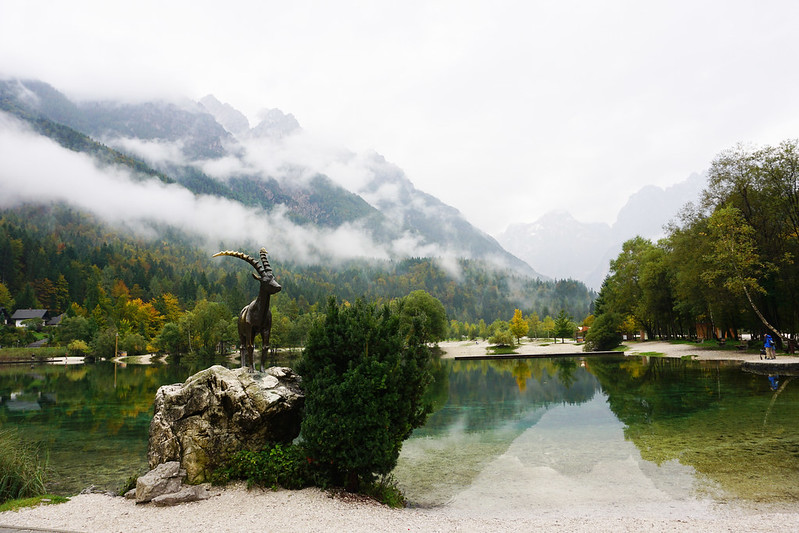
No litter here.
Now to you, expat friends: what do you love about your adopted country/continent? What makes it your place? What values drove you to find a new home?

16 comments
YES and more YES to this post. I feel much like you, Gigi, about Europe. It’s where I feel most at home for all the reasons you mention. And like you, I prefer the small mountain towns versus the big cities. My goal is to be like you and be in Europe most of the time. Just got to get my travel business to full time status! Thanks for this insightful post!!
Congrats on the biz going full-time!
Not there yet, Gigi. But it’s the plan — so I can be like you!!
Oh, I misread that! Good luck. :)
Love this. I’m obviously not an expat, but what you said about cars and wholesome food is absolutely part of why we chose to live and raise our kids in a mountain town. This sort of environment tends to attract people who are into the outdoors, health, and fitness… and by extension into biking/walking places, eating local/organic/healthy food, and supporting conservation of natural resources (recycling, etc).
Yes! This is one of the reasons Flagstaff is one of my fav places in the US that I’ve been.
I too love traveling in Europe for all the reasons you mentioned. What I find interesting is that many Americans go to Europe and enjoy riding bikes or walking places. They rave about the excellent train service. And the lovely markets.
But when they come home, they don’t choose to live in a European manner. And they certainly don’t push their leaders to bring the best parts of Europe to the U.S.
Because I love the European way of living, I gave up a car years before I moved onto our sailboat. I did much of my shopping by bike and at the local farmer’s markets. I sought out every pet-friendly restaurant I could find.
But many Americans seem to think all those things are only for vacations. Maybe we need to think broader.
As for the safety issue–while crime is lower in Europe than the U.S., many of those warning signs have less to do with safety and more to do with how litigious our nation is. Signs are supposed to keep businesses and towns from being sued. Sad, isn’t it?
For sure! When I’m in the US, I walk and bike whenever possible and try to shop at farmers’ markets. It’s definitely harder, which is why Europe is such a joy. But I agree – it doesn’t make a lot of sense if you love something to totally abandon it when vacation is over.
Hi Gigi, I completely agree with all nine points! It feels weird to me not to recycle, haven’t owned a car for years and I definitely like the many dogs on the streets and cafes, also the fact that you are assumed responsible for your own behaviour. Great post and points many North Americans who haven’t travelled may not have thought of. Cheers, Beverley
Thanks!
Yes to all of this. We’re back in the stateside for our first visit after moving to France last year. It’s hard to convey how exhausting/absurd I find the US. I try not to talk about it too much with friends because I don’t want to sound dismissive of their choices or situations. When asked I usually just say that it’s very nice to see people, which is absolutely true. Thanks for summing it up.
I hear you! It’s a fine line to walk – between being enthusiastic about a place you love and also not dismissing other people’s choices. Hope you get back to France soon!
Agree on all points! Please forgive me for being pedantic but… it should read “to Chad and ME” (not “I”); and “States” should be capitalized to refer to the U.S. Such an insightful piece deserves to be free of distracting errors!
Yeah. I always miss the “and me”s. Just one of those grammar things my brain keeps rejecting. Thanks for the heads up!
Enjoying the blog – just signed up for emails!
I was wondering…where do you recommend for the November to February timeframe? I’m planning some long term travels in Europe but haven’t quite figured out a great location for the coldest months of the year.
Depends on your preferences! November is still pretty moderate (and even sometimes warm) temperature-wise in Southern Croatia, central Italy, and pretty much anything southward from there. For very reasonable weather (think light jacket) in January/February, Malta and far southern Italy are good bets. If you’d like to embrace the snow and Christmas markets and such, Germany is the place for Christmas markets in December and northern Italy and France have some cute ones as well. And for snow and sunshine the Swiss Alps are a good bet in Jan/Feb.